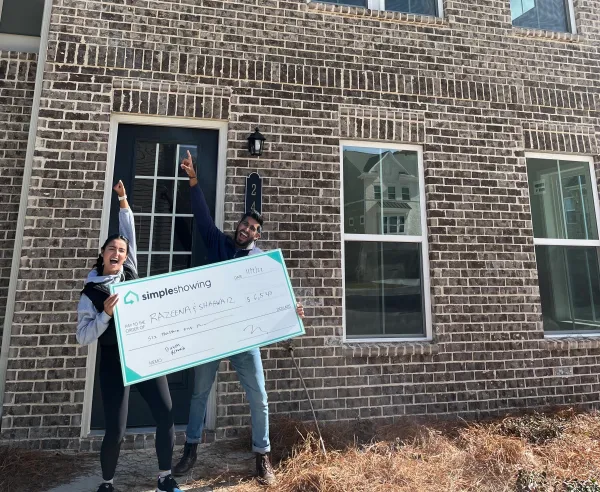It is likely that the purchase of your home will be the largest purchase that you ever make. Fortunately, there are contingencies that are often used to protect the buyer in this large purchase.
A contingency is a requirement that must be met in order for the purchase to go through. In the case of an appraisal contingency, the buyer is offering to purchase the house as long as its value matches the offer price.
What Is an Appraisal Contingency?
An appraisal contingency is a requirement that protects the buyer and lender.
After the seller agrees to the purchase agreement, both parties are entered into a legal contract. An appraisal contingency requires that the property of interest meets the agreed-upon price. This means that the property is valued at or higher than the offer price.
When setting an appraisal contingency, it is important to have an intended timeline. This is the amount of time that you have to order and produce the results of the appraisal. The buyer is required to share the results of the appraisal with the home seller. The buyer may adjust their purchase agreement based on the results, and it is up to the seller to agree or decline the edited agreement. Declining the agreement will back each party out of the contract.
An appraisal contingency will evaluate the following factors:
- Condition of the house
- Location of the house
- Required repairs
- Size of the house
- Number of bedrooms and bathrooms in the house
- Size of the lot
- Comparable sales of similar-sized houses in the area
- Demand for houses in the neighborhood
A registered appraiser will schedule an appointment with the sellers. During that appointment, they will evaluate the condition and features of the house. They will also take into account details about the neighborhood and recent sales, coming up with an appraised value. They will then offer a report to the buyer's lender and the buyer.
Appraisal Contingency vs. Financing Contingency
While there are a multitude of different contract contingencies that can be used by either party, the two most common types of contingencies are an appraisal contingency and a financing contingency.
An appraisal contingency related to a financing contingency and will allow you to back out of the sale only if the appraisal does not meet the offered price.
A financing contingency (or sometimes referred to as a mortgage contingency), on the other hand, is an intent to buy the property as long as the buyer is able to obtain funding. Some purchase agreements may have both types of contingencies present.
Other common types of contingencies that you might come across during the home buying process include:
- Inspection contingency
- Home sale contingency
- Financing contingency
- Appraisal contingency
- Home sale contingency
Understanding the different types of contingencies and how they protect you can ensure that you make an informed decision on your home purchase.
When an Appraisal Contingency Can Protect You
An appraisal contingency protects you from paying too much for a house that is not valued at your offered price.
If you were to pay more for the property than what it is worth, then you might find it difficult to sell the property later for a profit. Also, if your finances were to change and you could no longer afford the mortgage payment, you might not be able to sell the house to pay off the mortgage.
If you were to lose the property and it went back to the lender, they would also not be able to make up their initial investment. In this event, they would have to sell the house for its current value, and then they could come after your remaining assets to make up the difference of what you owe them. Because of the risk, a lender will not typically lend more than what a property is worth. The buyer would need to come up with the difference in cost in the event that they decide to still go through with the purchase. Depending on the value and offer of the house, this could mean thousands of dollars spent out of pocket.
Because an appraisal contingency protects the home buyer, it is the buyer's responsibility to cover the appraisal costs. Most buyers find it worth it to pay the couple hundred dollar cost of an appraisal to protect them from the potential risk. Depending on the requirements of the lender, you may be required to order an appraisal through your mortgage company.
When You Should Think About Waiving The Appraisal Contingency
Although it is not common to waive the appraisal contingency, there are a few situations when you might consider it:
- Competitive offer: The fewer obstacles that a home seller has to go through, the faster they can sell their property. Waiving the rights to an appraisal contingency can make your offer stand out among other buyers. However, because of the risk involved, this is not often recommended and there are other ways to make your buyer offer stand out.
- You are familiar with the market: Some real estate investors buy and sell properties frequently in a certain area. Familiarity may make these buyers aware of current values and neighborhood demands. In an attempt to cut costs and maximize profits, some investors may choose to waive the contingency.
- Automated appraisal: Some larger lenders have an automated appraisal process. This means that they are able to input the property address and a system will automatically gather details about the house, neighborhood, and recent sales in the area and provide you with an estimated value. This may lead some homebuyers to waive the contingency. However, it is important to keep in mind that the best way to get an accurate value is with an actual appraiser.
In most cases, you will find that an appraisal contingency is a necessary part of buying a house. Not only does it protect you legally, but it could also end up saving you thousands of dollars in the event you are required to make up the difference in the price.






